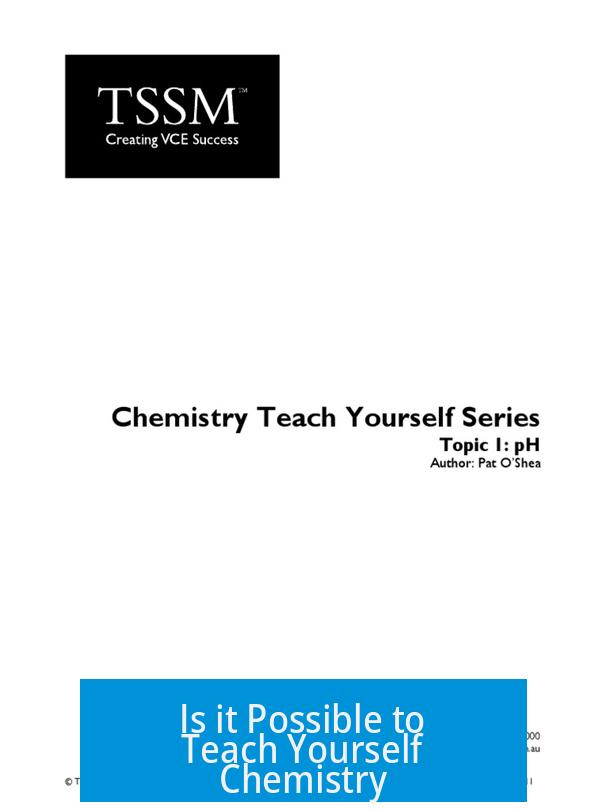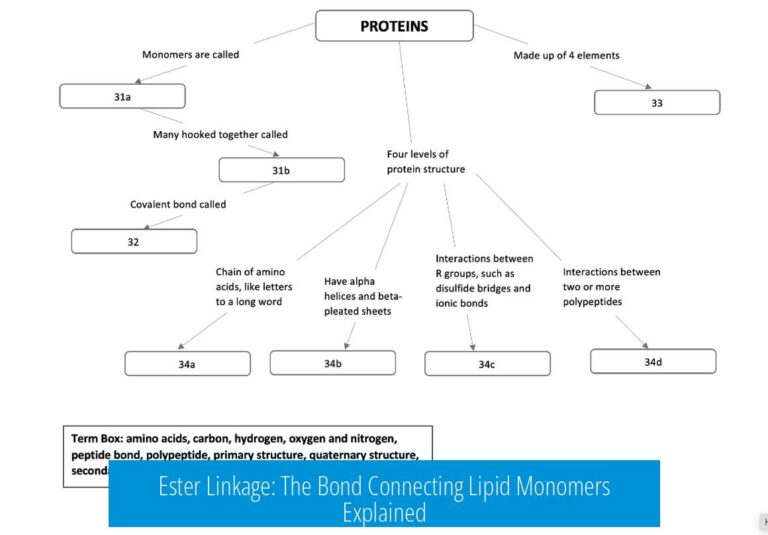Is it Possible to Teach Yourself Chemistry?

Yes, it is possible to teach yourself chemistry. Many have done so by using the right resources and methods, though it poses challenges. Chemistry demands both conceptual understanding and practical experience. Self-study requires consistent effort, appropriate materials, and often, external support for complex topics.
Feasibility and Challenges of Self-Teaching Chemistry
Chemistry can be self-taught, but it is not easy. Concepts are often difficult to grasp without guidance. Textbooks have improved, yet explanations from a tutor or instructor remain valuable. Early foundational topics may appear dull yet are critical for advanced learning.
Many learners find it hard to stay focused without direct interaction and feedback. Online courses and textbooks can provide structure, but without help, some questions remain unanswered, making progress slower.
Despite the challenges, self-learners highlight that chemistry is more tangible than some advanced physics courses. Understanding chemical principles feels intuitive once you start exploring core areas like inorganic chemistry.
Hands-On Learning: Importance of Laboratory Experience
Theoretical knowledge is accessible through books and videos, but practical lab work is different. Chemistry is an experimental science and benefits greatly from hands-on practice with experiments and reactions.
Self-learners can study theory independently, but supervised lab experience is recommended. Handling chemicals and instruments without guidance risks safety and limits full understanding. Laboratory work builds an essential feel for the subject.
Role of Prior Knowledge
Background in related subjects boosts self-study success. Experience with physics, especially quantum mechanics and relativity, helps as chemistry often builds on these foundations. If a learner has a solid grasp on basic chemistry or physics, progressing becomes more manageable.
Chemistry is sometimes described as observing phenomena one organizational level above physics. That perspective assists in connecting abstract concepts to practical chemistry topics.
Recommended Study Paths and Resources
Choosing a Starting Point
Many recommend starting with physical chemistry, offering a bridge between chemistry and physics. Books by McQuarrie & Simon or Peter Atkins provide strong, well-structured introductions.
Inorganic chemistry appeals to learners who prefer concrete, group-theory-related material. Miessler & Tarr’s book is a popular choice. Atkins and Shriver’s text links chemical bonding to quantum mechanics, enriching comprehension.
Organic chemistry deals with reactions and practical chemistry but tends to be more qualitative. For beginners, Asimov’s World of Carbon offers accessible insights into organic topics.
General chemistry books serve best as references rather than primary materials for motivated self-learners. The focus should remain on deeper topics with problem-solving exercises.
Online and Alternative Resources
- Khan Academy chemistry courses offer free video tutorials, exercises, and interactive content.
- Online texts, such as Preparatory Chemistry’s Atoms First, help structure early learning.
- Amazon and other retailers provide college-level textbooks, often with illustrations critical for understanding chemical structures.
- Exploring specific phenomena, like UV fluorescence in minerals, can make learning more engaging and contextual.
Approach According to Learning Goals
The learner’s objectives dictate the depth and style of study. Some seek knowledge for practical applications, such as understanding solutions or chemical reactions relevant to daily life or work. In these cases, basic chemistry concepts combined with skills in units and molarity may suffice.
Others pursue mastery for academic or professional reasons. These learners must commit to advanced topics, detailed practice problems, and structured progress akin to formal education.
Learning Strategy and Mindset
Chemistry’s many subfields encourage tailored study. Learners fascinated by math might gravitate toward physical chemistry. Familiarity with mathematical tools enhances understanding in areas like thermodynamics and quantum chemistry.
Following courses online while reading selected books mirrors typical academic routines. Supplementing this with practice problems deepens comprehension. Consistency and discipline are vital for success in self-study.
Summary of Suggested Books and Authors
| Field | Author(s) | Comments |
|---|---|---|
| Physical Chemistry | McQuarrie & Simon; Peter Atkins | Strong foundation; well-structured and rigorous. |
| Inorganic Chemistry | Miessler & Tarr; Atkins & Shriver | Focus on chemical bonding and group theory; links with quantum mechanics. |
| Organic Chemistry | Isaac Asimov (World of Carbon) | Good introductory qualitative insight; complements formal textbooks. |
| General Chemistry | Linus Pauling | Comprehensive perspective across fields; recommended for broad overview. |
Key Takeaways
- Self-teaching chemistry is possible but requires discipline and proper resources.
- Hands-on lab experience is crucial to fully grasp practical aspects.
- Prior knowledge in physics, particularly quantum mechanics, aids understanding.
- Physical and inorganic chemistry are accessible entry points for self-learners.
- Use textbooks, online platforms, and supplementary materials tailored to goals.
- Focus on consistent practice and seek guidance when possible.
Can I really learn chemistry on my own without formal classes?
Yes, it’s possible to teach yourself chemistry. The theory can be studied through books and online classes. However, it can be tough without a tutor or someone to ask questions.
Which books should I start with to self-study chemistry?
Start with physical chemistry books like McQuarrie & Simon or Peter Atkins. For inorganic chemistry, Miessler & Tarr or Atkins & Shriver are useful. For organic chemistry, Asimov’s “World of Carbon” offers a qualitative approach.
How important is lab work when learning chemistry by myself?
Lab experience is essential to truly understand chemistry concepts. You can grasp theory alone, but hands-on work is needed to get a real feel for how chemical reactions happen.
Does prior knowledge in math or physics help when teaching yourself chemistry?
Yes, a background in math or physics, especially quantum mechanics, makes learning chemistry easier. Chemistry often builds on these topics at a higher organizational level.
What learning approach works best when studying chemistry independently?
Break chemistry into subtopics and explore each briefly. Choose the area you find most interesting. Use pictures in books and online resources like Khan Academy to stay engaged and understand concepts better.





Leave a Comment